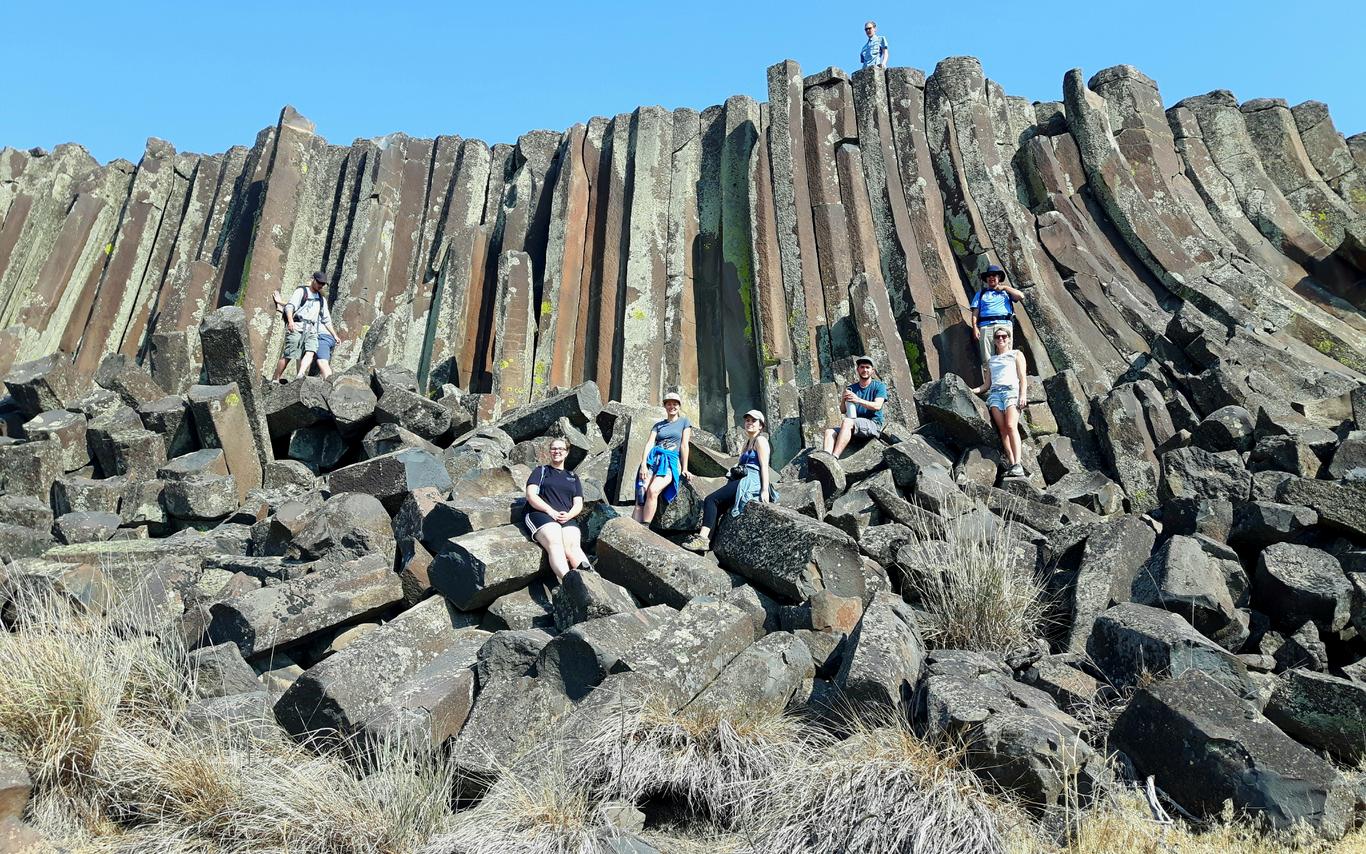Current faculty research
- Okanogan lobe tunnel channels and subglacial floods into Moses Coulee, Channeled Scabland, northwestern United States. Geology 2024. A different perspective on the traditional story by Joel Gombiner and Jerome-Etienne Lesemann
- Glacier dynamics and sedimentology. Jerome Lesemann. Jerome has been involved in a number of projects focused on glacial dynamics and landforms in regions previously overlain by the Cordilleran, Laurentide, and Scandinavian icesheets. Topics include till dispersal plumes, meltwater processes and sedimentation, and Cordilleran Icesheet glacial lakes.
- How Much Water Do We Have? In this podcast, Dr. Jerome Lesemann from VIU’s Earth Science Faculty talks about how he incorporated the UN sustainable development goals into a recent course using a backwards design approach. Driven by the learning outcomes for the course, Jerome designed his Geology 304 (Hydrogeology) course around a sustainability project that involved student input, hands-on learning and authentic assessment. https://wordpress.viu.ca/ciel/2023/03/06/the-share-drive-how-much-water-do-we-have/
- The Cordilleran Ice Sheet: An Ice Sheet Pre-Disposed to Outburst Floods, Dr. Jerome Lesemann et al.
Past faculty research
40Ar/39Ar and Rb–Sr dating of gold-bearing quartz–breccia mineralization and deformation within the Gordon Lake Region, Northwest Territories, Canada: a tribute to Dr. Nick Culshaw and 30 years on. Canadian Journal of Earth Sciences 2025. by Tim Stokes and Kyle Larson
- The Okanagan subterrane: a 'Subduction Initiation Rule' ophiolite in the Canadian Cordillera. Gerri L. McEwen. Masters Thesis. This project focused on developing a tectonic history model for the origin and evolution of the Okanagan subterrane, an ophiolite suite forming the basement to the composite volcanic island arc complex, Quesnellia. Link to thesis manuscript
- Microclimate Study of Forested Karst Sinkholes on Vancouver Island. Tim Stokes. The goals of this project are to document and define microclimates associated with karst sinkholes, and to assist in developing strategies for careful forest management and monitoring
- Monitoring and Investigation of Karst Springs on Vancouver Island, BC. Tim Stokes. The main purpose of this research is to investigate the water quality and subsurface flows associated with karst springs used as domestic water resources, and to examine the nature of the associated karst aquifer and catchment
- The Geologic and Geomorphic Evolution of Karst Lands on Vancouver Island, BC. Tim Stokes. This ongoing project is to develop a model for the geologic and geomorphologic processes that have led to the formation of these karst landscapes, integrating ideas related to the past glacial record, climate change and tectonic history of Vancouver Island and the west coast of BC.
- Petrogenesis of Deformed Intrusive Pods in the Quatsino Formation, Open Bay, Quadra Island, British Columbia. Sandra Johnstone. Petrological and geochemical study of deformed diorite and granodiorite intrusions within Quatsino limestone. Investigating the nature of the deformation, with potential correlations to a regional tectonic event
- Groundwater Vulnerability Mapping Project on Vancouver Island. Steven Earle, Erik Krogh (Chemistry), Alan Gilchrist (Geography), Lisa Munro, Regan Purdy, plus researchers from provincial MoH, MoE, and MoNR. The objective of this multi-year project is to use the DRASTIC methodology to map the vulnerability of Vancouver Island aquifers to contamination and to assess sources of contamination
- Elevated Fluoride and Boron Levels in Sandstone and Mudstone Aquifer of Eastern Vancouver Island. Steven Earle and Erik Krogh (Chemistry). Geochemical analysis of approximately 200 well-water samples from the Yellow Point and Gabriola Island areas has shown that fluoride and boron exceed acceptable levels in a significant proportion of wells. The objective of the study is to understand the origin of the anomalous conditions
- Applicability of geo-exchange to heating greenhouses in Southwestern British Columbia. Owen Peer. The study includes theoretical and applied research into the use of ground-source geo-exchange systems for heating greenhouses in the Lower Mainland and on Vancouver Island.
